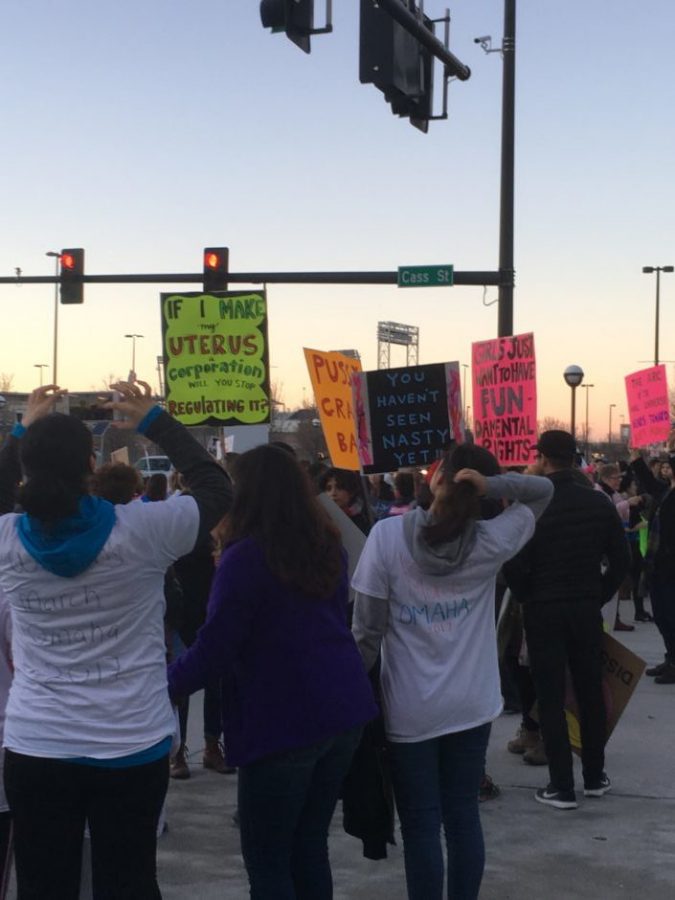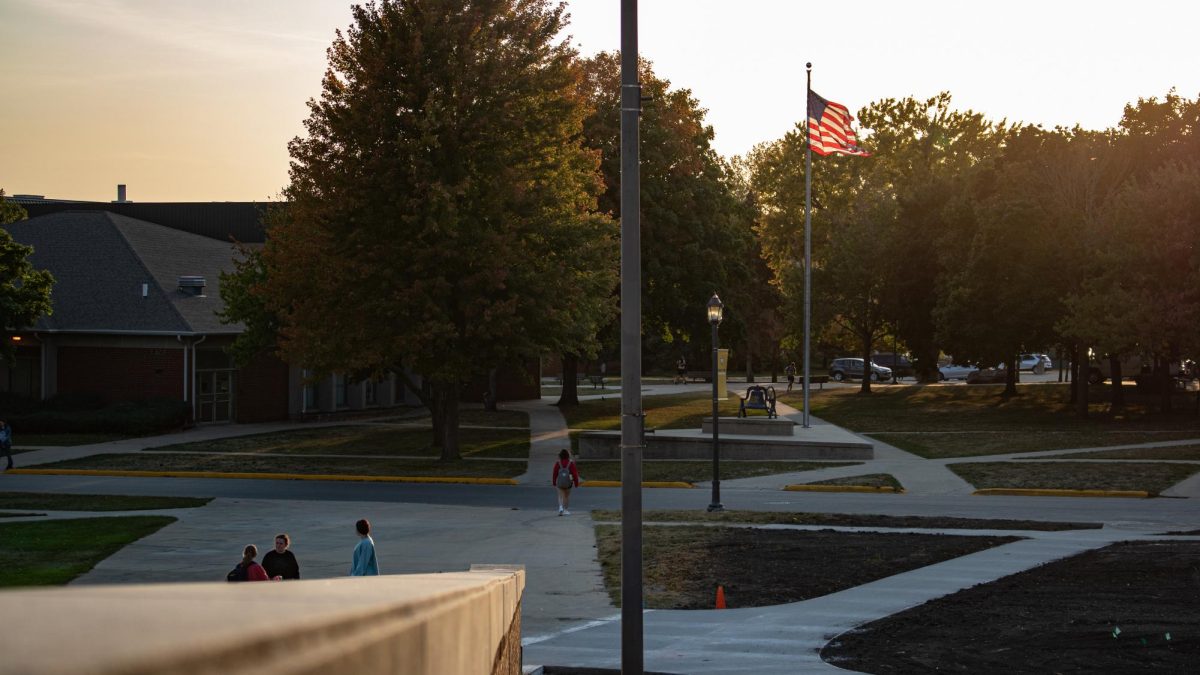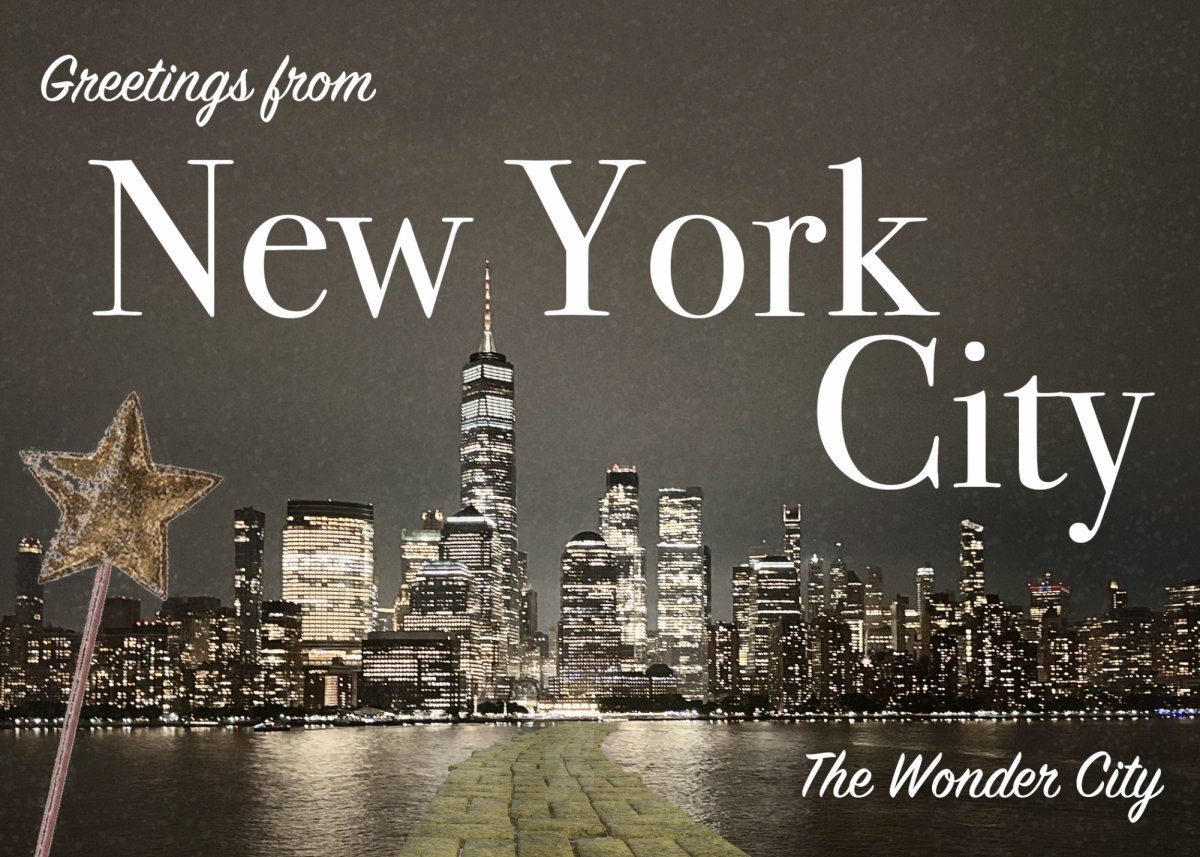Morgan Langan | Contributing Writer
On January 20, 2017 President-Elect Donald Trump officially became the President of the United States of America. With his right hand raised and his left hand over two bibles, he swore that he would “to the best of [his] ability, preserve, protect and defend the Constitution of the United States.” Upward numbers show that 600,000 Americans witnessed President Trump’s oath at the National Mall—average attendance in comparison to the past inaugurations. However, Saturday January 21, 2017 saw a movement of well over three million people from all over the world march against the ideals of the Trump administration in what is being called the largest protest in United States history.
Buena Vista University (BVU) provides its students with a three-week interim period during the month of January, known as J-Term. Students take this time to travel the world, to participate in fun and interesting classes, or to participate in a professional internship. For my J-Term experience, I was placed at Omaha’s Henry Doorly Zoo and Aquarium as a zookeeping intern in the award-winning Lied Jungle. I spent six weeks there, instead of the traditional three, and stayed on zoo grounds in their student housing. While I was there, I made many intern friends. The most notable was Rachel, a Jewish vet-tech intern passionate about politics. I am not one to ever shy from saying my opinion—I am a liberal, a feminist, and a Facebook rant aficionado—Rachel is the same way. We bonded initially when she noticed my White Stripes-inspired “Icky Trump” sticker I had on my computer. We had several political conversations in our time together, which culminated in our attendance of the Women’s March on Omaha. For those not familiar with the political terrain of Nebraska, it’s red across the board with the highest concentrations of blue in the metro area, so it was wonderful to find someone with similar views and passion to tackle this controversial, yet necessary event.
We arrived at the Century Link Center downtown and were immediately surprised by the amount of people outside. I spoke with one of the coordinators of the event, and she said that they were expecting about 1,500 people. We didn’t have an official count at the time, but it was easy to see that there were well over 1,500 people surrounding the arena. People of all ages, races, and genders were congregated to show solidarity for women. Protestors had signs in hand that were overwhelmingly supportive and positive. The overall atmosphere was incredible. People were passionate, upset, and ready to let their voices be heard.
Perception of protest has always been slightly skewed. This past political season saw many protests and riots, and to many, there is no distinguishing between the two. People see acts of violence and rage during a movement and assume that all protests have those elements. I’ve heard protesters be called crybabies, sore losers, and plenty of expletives. I’ve had all of those things said directly to me. It’s hurtful, but it speaks volumes to how hard we must work to have our concerns heard. Women have protested for the right to vote, the right to work, and the right to choose. All these moments were met with opposition and criticism, but they have created chains of progress that have made incredibly positive impacts on women’s lives.
Despite what perceptions people have, my own anecdotal evidence has shown that our peaceful protest was exactly that—peaceful. The Women’s March on Omaha team did all of the necessary paperwork to make our protest safe and legitimate, police were asked to help guide traffic (I and many others thanked every officer we saw), and a ballroom in the Century Link Center was reserved for us to listen to speakers and have conversations about social issues we’re facing. Chants in the streets included “Love not hate makes America great,” “Show me what democracy looks like! This is what democracy looks like!” and “Love trumps hate.” The group was overwhelmingly positive in their protest, and organizers worked hard to ensure it would be that way. While it was not regulated what posters could say or what people could chant, the FAQ page for the march encouraged protestors to refrain from expletives, keep poster statements surrounded fighting for something instead of against something or someone, and so on. While these guidelines were not always followed and there was some trash talk, the majority of people there were making a statement about the good and power of women and our rights to make choices for ourselves, hold positions of power, live in this country, and practice our religions. No one attacked counter protesters, and I had never felt more American in my life. Events like this are really what make America great.
A large question I had been asked is what did I personally march for. For me, the march was more about solidarity than anything, but there were personal issues that fueled my fire and made me take to the streets. First, I marched for women to be seen as powerful. Women have made leaps and bounds through time to show their leadership, ingenuity, strength, and brilliance, but the stereotype shows men as the strong, powerful, and intelligent ones. I marched because in my female-dominated career field, men are the stereotypical zookeeper. There is masculinity in zookeeping that is completely made up, yet when you talk about a zookeeper, more often than not, people imagine a man. I marched to show that women can succeed in whatever career they put their minds to, and it is time they get the image they deserve. Second, I marched for the right to reproductive care. I hear people say, “I’m pro-choice, but I don’t think I would ever get an abortion,” but I am not one of those people. I am not in a place where I am capable of having a child—mentally, physically, or financially, and I’m not sure if I will ever be in a place where I want to have a child. Women all over the country are in the same situation as me, and sometimes worse. To strip our choice or even to defund Planned Parenthood, which does amazing thing for STI prevention and treatment and cancer screening, is to dehumanize the female experience. Third, I marched for womanhood. Being a woman is not about makeup or having a vagina. Women have many different experiences, almost every single one of which is criticized. Women either wear too much makeup or don’t care enough about their appearances; are too self-obsessed or are too dependent on men; are too feminine or too masculine. Womanhood has a history of criticism, and in the 21st century, it is time to accept the woman experience as normal and wonderful, not as inferior. While not every woman experiences oppression or criticism, it exists in this world, especially for women of color and LGBT+ women, and we need to combat it.
Omaha saw over 15,000 people march, three times as many people who live in my small Nebraska town. Women are ready for equality, acceptance, and power—things that have been denied or suppressed for too long. Women from sea to shining sea and around the world saw our new executive administration and congress as a threat to the work women have done and will silence the work we still need to do. We came together as millions to let them know we will never sit down and shut up. Because this is what democracy is about, not just catering to the desires of those who agree with you, but representing all the people you stand for. We as American women always have and always will be marching, and we’ll always say when those swearing to uphold the constitution are leaving many of us out.









